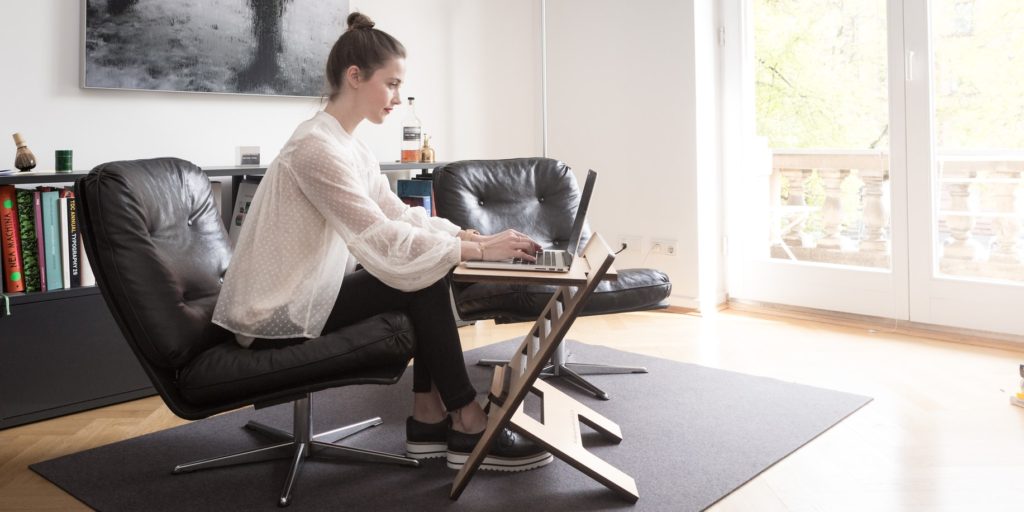- Poorly shovelled sidewalks will lead to slip and falls this winter - December 11, 2024
- Brain injuries are costly on an emotional and physical level - November 22, 2024
- Long-term disability payments could come with a tax liability - October 23, 2024
By Paul Russell, LegalMatters Staff • Workers injured on the job are generally in a good position to make a claim against their employer for compensation. But what if they are working from home when the injury occurs?
“They may have a good argument for filing a claim, but every case will be very fact-specific,” says Toronto personal injury lawyer Joshua Goldberg.
“The Workplace Safety and Insurance Board (WSIB) frequently deals with work injury claims, but I am not aware of any home-office injury cases that have been adjudicated in Ontario,” he adds.
Considering the large number of people working from home, Goldberg tells LegalMattersCanada.ca that he expects that will change in the coming year. According to a recent Statistics Canada report, 37.2 per cent of the workforce in Canada work primarily from home.
“During the COVID-19 pandemic, the home office has been a workplace for many people,” says Goldberg, principal of Joshua Goldberg Law.
“Many spend their entire workday at a desk in a home. If they are injured during working hours, they should approach a personal injury lawyer for advice about whether they are eligible for compensation.”
Quebec tribunals sides with injured home-office worker
In December, 2021, a Quebec tribunal was one of the first in the country to deal with a home-office injury claim. According to court documents, the Quebec Commission des normes, de l’équité, de la santé et de la sécurité du travail, part of theQuebec Labour Ministry, heard an appeal from Air Canada. It was contesting the admissibility of an occupational injury suffered by one of its call centre employees who was working remotely from home and injured herself as she went downstairs for her lunch break.
The judgment notes that she claimed she suffered the injury while exiting her workplace and thus should be eligible for workers’ compensation. In Quebec, that represents 90 per cent of an employee’s salary for up to two years.
Court documents show the employer did not dispute that the worker’s fall was a sudden and unforeseen event, as defined by Quebec’s Act Respecting Industrial Accidents and Occupational Diseases. Air Canada also did not dispute that the woman suffered injuries as a result of her fall.
- COVID-19 is sure to spark long-term disability claim disputes
- Advice on slip and falls, COVID, accidents, holiday parties and pets
- Common-sense steps can reduce your liability in winter injuries
However, the airline argued that since the fall on the stairs occurred when the woman was “no longer in her professional sphere, but rather in her personal sphere,” it should not be considered a workplace injury.
In addition, they argued that since she was no longer in her home office at the time of the accident, there was a “presumption of privacy” that prevented the employer from having any control over the management of the workplace.
‘Presumption of privacy’ at home
“Of course Air Canada made the argument that there is a ‘presumption of privacy’ when someone is at home, and that any injuries that occur there should not be considered workplace injuries,” says Goldberg.
“But as the tribunal pointed out, there have been other work accidents in Quebec that have occurred in places that employers have no control over, such as hotel rooms, convention halls and parking lots managed by third parties, for which compensation has been paid,” he explains.
According to the judgment, the tribunal determined that the only reason the woman was taking the staircase from her office to get lunch when she fell was that she was bound to a work schedule imposed by Air Canada.
Other home office workplace injuries may not be so easy to build a case around,” says Goldberg. “For example, if you are making coffee and you spill some and suffer a small burn, that might not be considered a workplace injury. But if you receive a shock from your work-issued computer that leaves you injured, that could be a claim worth pursuing.”
Quebec ruling not a precedent in Ontario
Since Quebec relies on the Civil Code instead of common law and because the ruling came from one of the lowest levels of justice in that province, the tribunal’s ruling does not establish a precedent for Ontario.
However, Goldberg expects to see similar claims in Ontario soon.
“As we move forward there will be other cases like this that will make it to the courts in this province,” he says.
“Every case will be decided on its merits and facts, and judges may be wary to side with complainants unless they can show they have suffered a true workplace injury.”
Goldberg says anyone who suffers a work injury in a home office should contact him for a free consultation.

